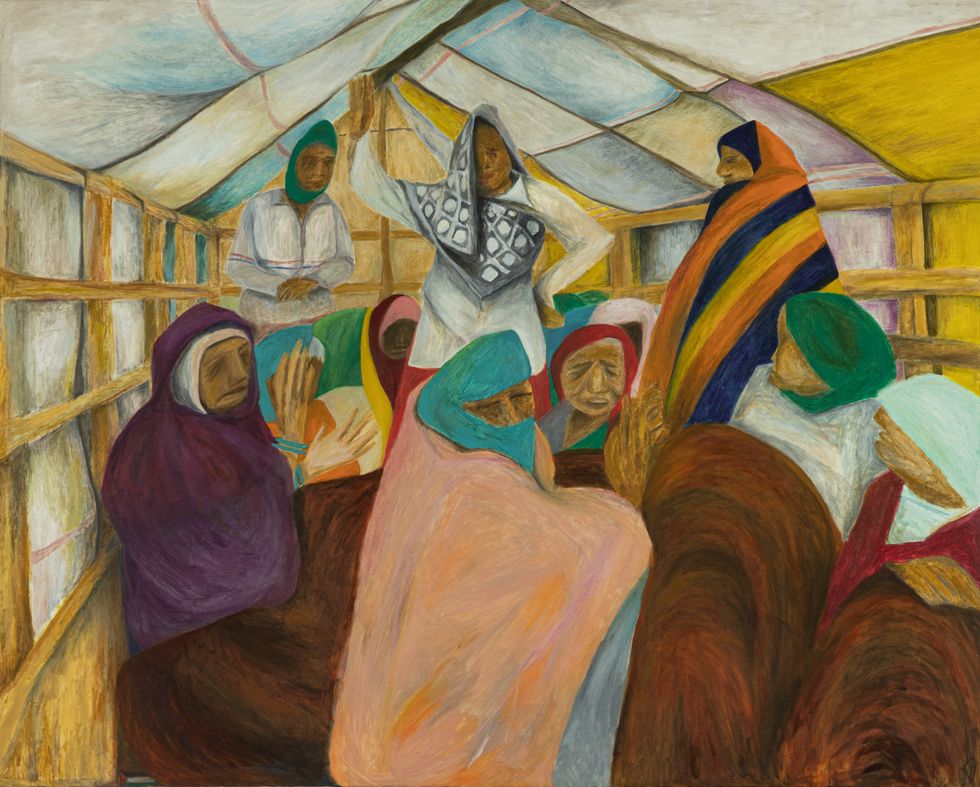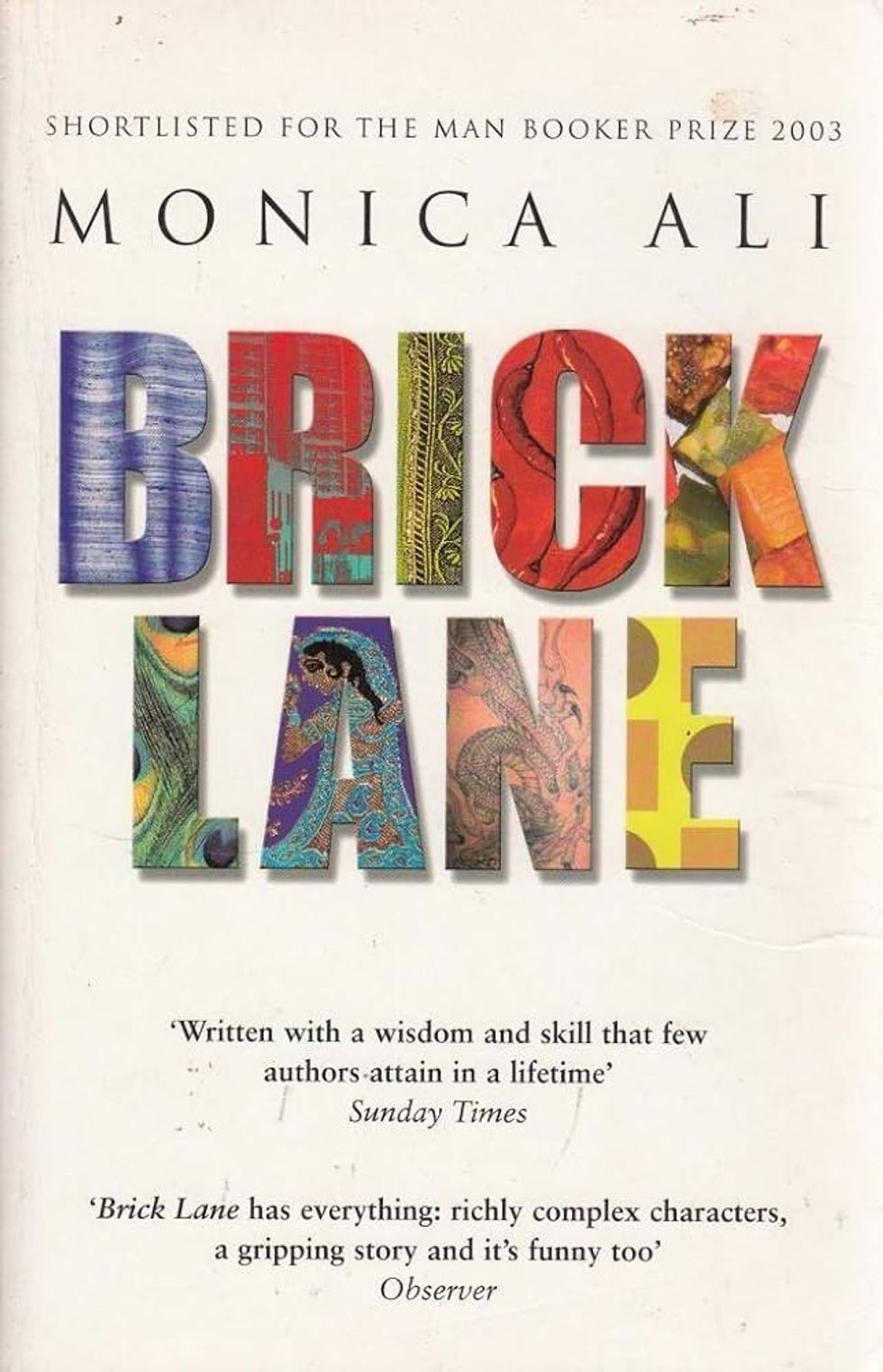TANIKA GUPTA’S new play, A Tupperware of Ashes, which I would urge British Asian families to catch at the Dorfman Theatre at the National before the run ends on November 16, is about dementia.
What do you do when your parents are elderly and frail and unable to look after themselves?
In Asian culture, we tend not to send our parents to care homes but instead look after them ourselves. But what happens if your parents become a danger to themselves and to others? What happens if they need round the clock medical supervision?
This is basically the plot when ‘Queenie’ Mukherjee (Meera Syal), a woman who claims to be 65 but is 68 really, is initially forgetful, burns her dishes and prangs her “midnight blue” Mercedes convertible before descending into dementia. She is a Michelin star restaurant owner preparing for a VIP visit by the Indian High Commissioner but has to be reminded by one of her employees that she had already hosted the diplomat several months previously.
Queenie has been a widow for over twenty years but she constantly remembers her late husband, Ameet (Zubin Varla), who is very much on stage throughout the play. Only her children cannot see their imaginary late father.
Pooja Ghai has grown as a director. How the play ends is obvious from the title – Queenie’s ashes are taken back and tossed into the Hooghly in Calcutta (now Kolkata). This is the city where Ameet and Queenie began their journey after marriage in their twenties and deciding to arrive in England via the romantic sounding port of “Southampton”.
Her two sons, Raj (Raj Bajaj) and Gopal (Marc Elliott) – a partner in a legal firm and the regulation gay in the plot – and her doctor daughter Kamala (Natalie Dew), want to keep her at home but when she starts flashing kitchen knives around, what other option do they have?
Marc Elliott as Gopal and Meera Syal as ‘Queenie’ MukherjeeMeera Syal’s voice and style of acting are so distinctive, dating back to the days of Goodness Gracious Me, that there is always a risk that Meera Syal will end up playing Meera Syal. It’s to her credit that she doesn’t. I found her very convincing and moving as Queenie, although perhaps a typical Bengali woman wouldn’t be so foul-mouthed (I don’t think I ever heard my mother or my sisters ever swear). But then perhaps my experience of life is limited.
Shobna Gulati is also excellent as Queenie’s best friend and confidante, Indrani, though she wonders why her childhood pal has become three years younger: “If you’re only sixty-five, then how come we were in the same class at school and I’m sixty-eight?”
We see a solicitor drop in to discuss an LPA – that’s a “Lasting Power of Attorney”. I know all about that because I had to get the necessary documents for my uncle when an MRI scan in late 2022 confirmed the onset of vascular dementia. In summer last year, a solicitor came round – as in Tanika’s play – and explained there were two types of LPAs. One was for his financial affairs, the other for his health.
By the time the LPAs came round four months later, my uncle, who had once been a senior marketing director in charge of global businesses, had completely forgotten about them. My uncle died when I had exhausted all options and was on the point of moving him, as his next of kin, into a care home. He was nearly 89. He lived alone at his spacious home in Colchester after his wife died 15 years ago. I don’t think a care home would have suited my uncle. He was happy in familiar surroundings. His beautiful garden was a solace. But when he didn’t answer the phone or the door, neighbours had to break in.
He had been lying fully clothed on the bedroom floor. When he insisted on returning home after three weeks in hospital, it didn’t work out. He fell out of bed in the night and had to be rushed back to hospital in the morning, with me accompanying him in the ambulance. Like Queenie’s children, I will have to make arrangements to have his ashes scattered probably at Babu Ghat in Calcutta, as was the case, sadly, with my youngest brother 16 years ago.
Tanika has drawn from personal experiences, I assume, to tell the story of what happens to a British Asian family – one set in a Bengali milieu in this case with touches of Tagore thrown in – when a near and dear one is diagnosed with dementia.
We realise early on that something is not right with Queenie when she wades into the North Sea imagining she is taking a dip with her husband. Her son Raj comes to the rescue: “Baba was a good swimmer, and you can’t even swim – what’s got into you?”
Next, she burns the pans.
“You could set the house on fire!” Raj tells her.
One person (never seen on stage) is Raj’s partner, Krishna, whom Queenie absolutely loathes. Matters are not improved when Raj reveals Krishna is expecting their first child.
Queenie is upset Raj cannot stay for dinner even though his mother has cooked his favourite Lamb bhuna (should have been Khosha mangsho for authenticity since this bhuna business is not quintessentially Bengali though maybe I am quibbling here).
Queenie snaps at her son: “Always Krishna comes first. She snaps her fingers and off you run. What about your poor mother?”
This kind of emotional blackmail is very common in Asian families. A Gujarati friend of mine is never allowed to go out with her friends as her ailing mother insists she should be on duty round the clock: “Fine, you go out and have your fun. Don’t be surprised if you come back to find my dead body!”
My friend sacrificed her career as a journalist and has been a carer, for her late father, and now for her mother, for the last 40 years.
After a number of tests on Queenie, a doctor comes up with the diagnosis: “I’m afraid your brain scan showed there was a little shrinkage and you struggled with the memory test……Your memory loss, scans, Ms Mukherjee, looks to be explained by early onset Alzheimer’s disease.”
In my uncle’s case, he insisted – incorrectly – till the end that an injection given during his MRI scan had caused his memory loss.
And a doctor had to call on him at home to reassure him that he had not been dropped from his GP surgery list as my uncle was insisting.
Unlike Queenie, my uncle was never ever violent but became increasingly frustrated with short term memory loss. I tried repeatedly with his GP but was told there was no cure for dementia.
Meera Syal“Getting worse,” Raj says about Queenie’s condition.
“Poor Ma,” agrees Kamala. “The disease has progressed really quickly.”
Raj asks his sister: “You’re a doctor, Kamala, isn’t there anything medically we can do?”
Kamala gives the answer I also received regarding my uncle: “She’s only gonna get worse.”
I fed my uncle a little mango when he returned briefly from hospital. “Good,” he said, relishing the fruit.
Poor Kamala tries to force food into her mother’s mouth as she brushes the rice away.
Indrani rounds on the children as they contemplate a care home: “Ungrateful children. You owe her. Chucking her out on the scrap heap….Should be ashamed of yourself…You’ve become like the English. They treat their pets better than they treat their parents…. In our culture, service to our parents is defined as life’s highest honour.”
And that is the dilemma at the heart of the play.
A Tupperware of Ashes, a new play by Tanika Gupta, is at the Dorfman Theatre at the National until November 16, 2024.


















 Manmeet K Walia
Manmeet K Walia Salima Hashmi
Salima Hashmi Tikri Border, Haryana-Delhi by Aban Raza
Tikri Border, Haryana-Delhi by Aban Raza


 Her book
Her book